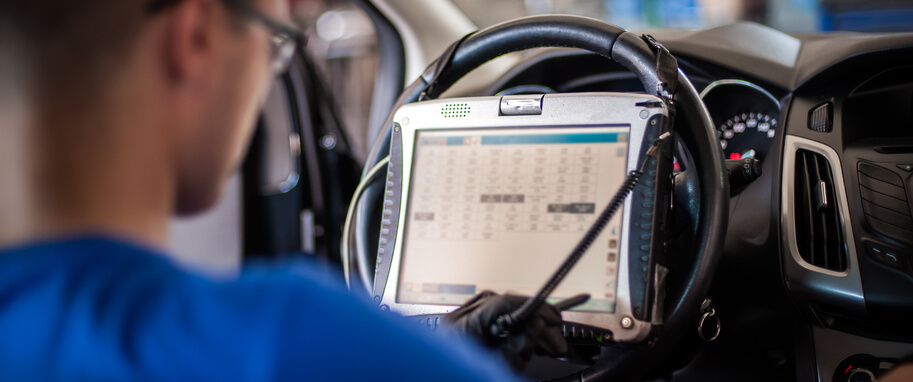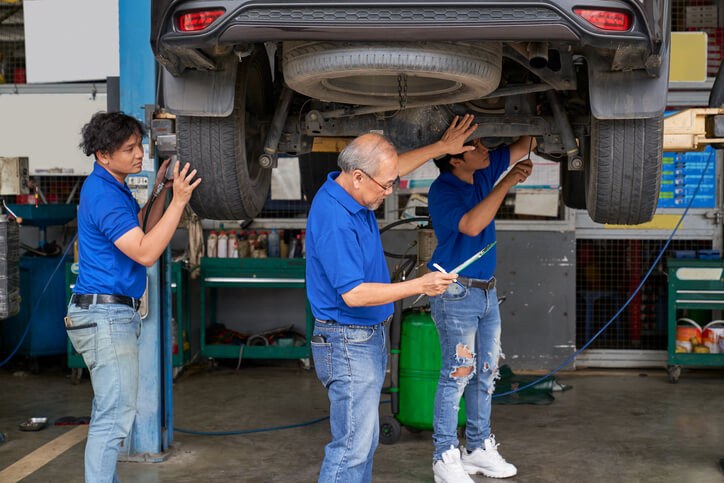Top Tools You’ll Work With in Auto Mechanic Training at ATC Cambridge
Choosing a career in automotive service means getting comfortable with tools; lots of them! At ATC Cambridge, students enrolled in auto mechanic training don’t just learn theory. They gain hands-on experience using the same industry-standard tools found in modern repair shops. Knowing how to use these tools properly gives you a major edge in the job market and builds confidence for real-world work.
So, what can you expect to work with in the shop? Let’s look at some of the essential tools you’ll get your hands on during your auto mechanic school experience.
1. Torque Wrenches
Precision matters. Torque wrenches help ensure that nuts and bolts are tightened to exact specifications, critical for engine assembly, tire installation, and suspension work. You’ll learn how different torque settings affect vehicle performance and safety.
During automotive training, you’ll gain experience using both manual and digital torque wrenches to achieve the correct levels of force. This is especially important when working on engines or wheels, where precision is required, not optional.
2. OBD-II Diagnostic Scanners
Modern vehicles are essentially computers on wheels. That’s why diagnostic tools are some of the most powerful pieces of equipment in the shop. On-Board Diagnostic (OBD-II) scanners read error codes from a car’s engine control unit (ECU) and help identify problems quickly.
ATC Cambridge students are trained to use these devices for diagnosing everything from engine misfires to sensor failures. Learning to interpret this data is a vital skill for anyone pursuing auto mechanic training today.

3. Impact Wrenches and Air Tools
Speed and efficiency are important in any automotive repair shop. Pneumatic (air-powered) tools like impact wrenches help you remove stubborn bolts in seconds. They’re loud, powerful, and incredibly useful for tire rotations, brake repairs, and suspension work.
In the shop, you’ll be trained to use these tools safely and effectively. Mastering impact tools not only boosts your productivity, but it also makes you a much more valuable technician on the job.
4. Vehicle Lifts and Jacks
Proper lifting equipment is essential in automotive service. You’ll work with hydraulic lifts, floor jacks, and jack stands to safely raise vehicles for inspections and repairs. ATC ensures that students know proper lift procedures and safety protocols, which are critical in every professional garage.
This hands-on practice helps you build confidence in managing large-scale repairs and navigating undercarriage work.

5. Brake Lathes and Specialty Tools
Brakes are one of the most common components serviced by mechanics. You’ll explore how to use brake lathes to resurface rotors and drums, ensuring smooth operation and safety on the road during auto mechanic school. Specialty tools like caliper presses and bleeding kits are also part of your brake system training.
Understanding how to use these tools correctly ensures you’ll be ready to tackle one of the most frequent and important jobs in any repair shop.
Why Tool Proficiency Matters
It’s said that a mechanic is only as good as his tools. In a shop, your tools are extensions of your hands. Knowing how to use them properly not only improves your efficiency but also enhances your ability to diagnose and fix issues accurately the first time.
Employers look for new hires who don’t need constant supervision with equipment. That’s why p is essential; it builds the skills and confidence employers value from day one.
Launch Your Career With Auto Mechanic Training at ATC
At our auto mechanic school, our training environment replicates the reality of a working shop. You’ll use professional-grade tools and equipment from day one, guided by experienced instructors who’ve worked in the field. By the time you graduate, you’ll not only know what tools do; you’ll know how to use them like a pro.
Are you looking for comprehensive automotive training?
Contact ATC Cambridge for more information.


